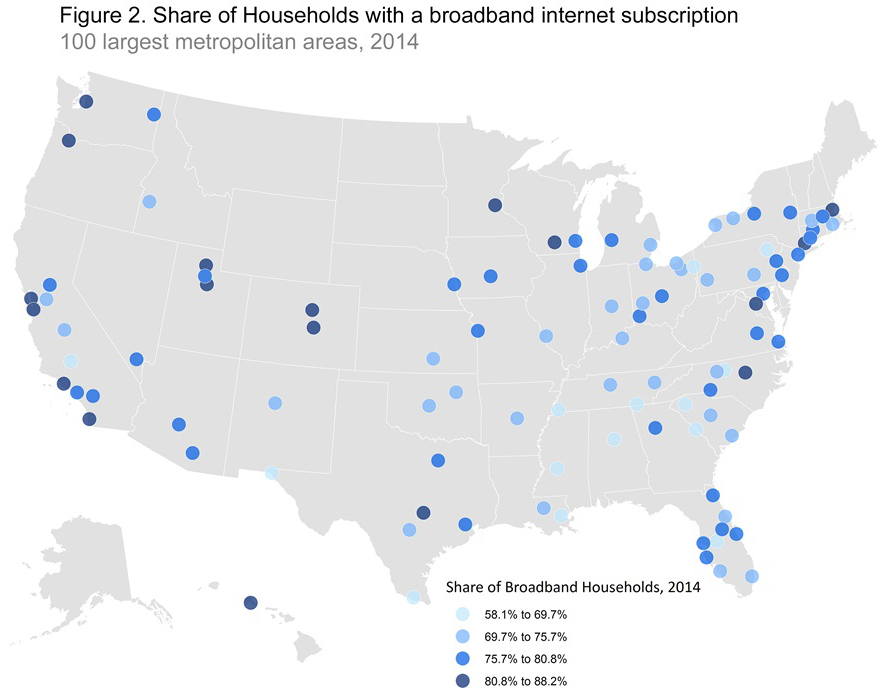 New research about broadband adoption from the Brookings Institute reinforces some previous findings but also breaks new ground, uncovering some previously unobserved factors that can have a significant impact on broadband adoption rates.
New research about broadband adoption from the Brookings Institute reinforces some previous findings but also breaks new ground, uncovering some previously unobserved factors that can have a significant impact on broadband adoption rates.
The Brooking institute study focused on the top 100 metro markets, exploring why areas such as San Jose, Seattle and Boston have adoption rates exceeding 80% while others – including Lakeland, Greensboro and McAllen have adoption rates below 65%. (The national average is 77.8% for metro markets and 75.1% for the country as a whole, according to the researchers.)

Broadband Adoption
In keeping with previous studies, the Brookings Institute researchers found that areas with higher income and education levels had higher broadband adoption rates. But some less closely-studied factors – including the percentage of telecommuters and the percentage of people within a metro living in urban areas — are also important drivers of broadband adoption, the researchers noted.
The percentage of telecommuters was a particularly important predictor of broadband adoption, with a 1% increase in the share of all commuters working from home associated with a 1 percentage-point increase in broadband adoption. As for the impact of a strong urban population, researchers speculated that the association “may speak to a combination of different factors, including greater infrastructure deployment in dense areas, lower costs of service relative to rural areas, and potential network effects from neighbors using computers and the Internet.”
Another important driver was the share of workers in technology-, management- and education-focused occupations, researchers noted.
Policy Recommendations
Finding ways to help close broadband adoption gaps should be an important policy goal, the Brookings Institute researchers argued.
“There is no question that the Internet is a huge boon to the economy and society, but maximizing its potential is only possible if all individuals are online,” the researchers wrote.
The researchers made several recommendations for policymakers, including:
- Targeted income assistance programs such as ConnectHome and a reformed Lifeline program. Additionally regional programs should address local needs, and all level of government should work with Internet service providers on relevant initiatives.
- Digital skills training should be expanded and should extend across entire metro areas.
- Public and private sector employers should continue to incentivize telecommuting.
- Research into broadband adoption should continue to be an important policy objective.


